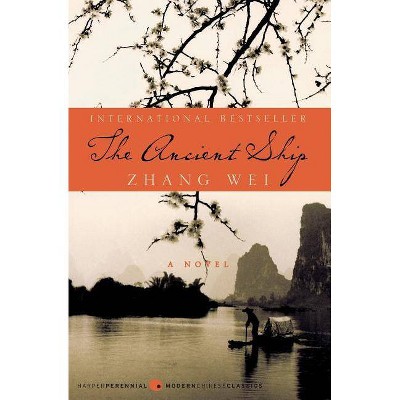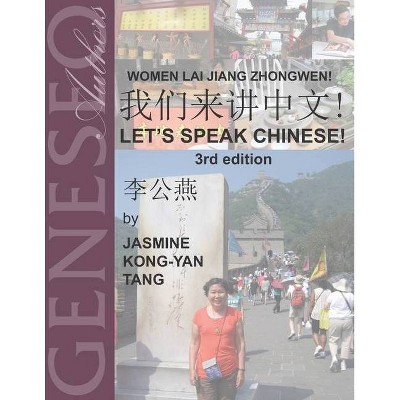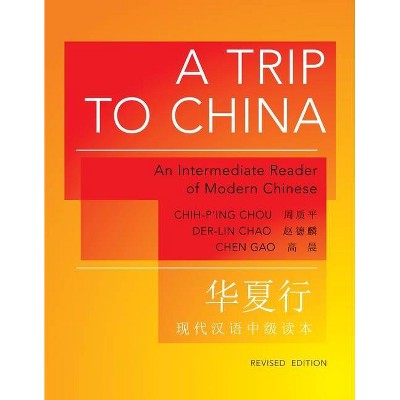Ancient Chinese Thought, Modern Chinese Power - (Princeton-China) by Xuetong Yan (Paperback)
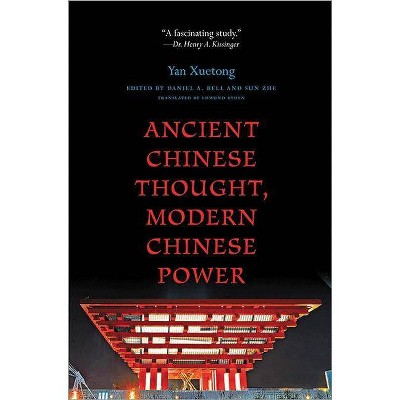
Similar Products
Products of same category from the store
AllProduct info
<p/><br></br><p><b> About the Book </b></p></br></br>"[W]ith a new preface by the author"--Title page verso.<p/><br></br><p><b> Book Synopsis </b></p></br></br><p>The rise of China could be the most important political development of the twenty-first century. What will China look like in the future? What should it look like? And what will China's rise mean for the rest of world? This book, written by China's most influential foreign policy thinker, sets out a vision for the coming decades from China's point of view. <p/> In the West, Yan Xuetong is often regarded as a hawkish policy advisor and enemy of liberal internationalists. But a very different picture emerges from this book, as Yan examines the lessons of ancient Chinese political thought for the future of China and the development of a Beijing consensus in international relations. Yan, it becomes clear, is neither a communist who believes that economic might is the key to national power, nor a neoconservative who believes that China should rely on military might to get its way. Rather, Yan argues, political leadership is the key to national power, and morality is an essential part of political leadership. Economic and military might are important components of national power, but they are secondary to political leaders who act in accordance with moral norms, and the same holds true in determining the hierarchy of the global order. <p/> Providing new insights into the thinking of one of China's leading foreign policy figures, this book will be essential reading for anyone interested in China's rise or in international relations. <p/> In a new preface, Yan reflects on his arguments in light of recent developments in Chinese foreign policy, including the selection of a new leader in 2012.</p><p/><br></br><p><b> From the Back Cover </b></p></br></br><p>"China's great thinkers from the time of Confucius are known for their profound contributions to philosophy, ethics, and military strategy. Less appreciated in the West is their sophisticated thinking about statecraft. The incessant conflicts among the fragmented principalities that eventually formed a unified China in 221 BC produced a rich flowering of conceptual thinking on issues of governance and interstate relations. In this fascinating study, inquiring readers will find a wealth of information regarding how ancient China's strategic sages assessed the factors determining the success or failure of rulers and states, with immediate relevance for better understanding the implications of China's current rise to wealth and power."<b>--Dr. Henry A. Kissinger</b></p><p>"China's increasing strength and influence in the modern world are confronting Chinese with a new set of intellectual challenges in assessing how the country's enhanced status will affect Chinese behavior, how other countries will react, and what policies China should adopt to optimize its interests. Not surprisingly, thoughtful Chinese are looking for clues in their distant past, two and a half millennia ago, when the competition over six centuries among the political enclaves that eventually formed a united China prompted an outpouring of philosophical thinking on issues of statecraft. This stimulating book examines this thinking in ways relevant both to international relations theory and China's emerging position in world affairs."<b>--J. Stapleton Roy, former U.S. ambassador to China</b></p><p>"Xuetong Yan, one of China's liveliest and most provocative international relations scholars, provides an excellent introduction to ancient Chinese theories of statecraft. Combined with the responses of his critics, his thoughtful essays reveal the exciting intellectual ferment among China's international relations thinkers. Many of the concepts are recognizable to Western scholars, some are not, but Yan's masterful effort to show how all these ideas might be relevant to China's 'rise' should be read by everyone who is interested in understanding how the past may influence the present."<b>--Alastair Iain Johnston, Harvard University</b></p><p/><br></br><p><b> Review Quotes </b></p></br></br><br><i>Ancient Chinese Thought</i> mixes rich historical analysis with modern policy prescription. . . . Yan's work stands out due to the additional leverage he gains from new historical interpretation, from the relevance of his thesis on political legitimacy to domestic politics in a transitioning China, and from the contribution his new approach makes to what might be considered an emerging 'Chinese School' of international relations.<b>---Brock F. Tessman, <i>Perspectives on Politics</i></b><br><br>[F]or those who welcome a China that is increasingly active at the global level, as well as for those who do not, it seems the time is right to thoroughly engage with the ideas and proposals of prominent Chinese thinkers today like Yan Xuetong. By putting his grand vision for a Chinese 'superpower modelled on humane authority' to the test before it becomes a possible political reality, we will have gained a greater appreciation of China's cultural heritage and, following that, a glimpse at its possible political future.<b>---Mark Chou, <i>Australian Review of Public Affairs</i></b><br><br>[I] found Dr. Henry A. Kissinger's comment that it is 'a fascinating study' very much to the point. . . . Given China's growing influence in the world right now, the work should no doubt have a wider readership than might appear the case <i>prima facie</i>. Princeton University Press should be congratulated on producing such a handsome volume. It can be highly recommended for library purchase in its hardback edition.<b>---Malcolm Warner, <i>Asia Pacific Business Review</i></b><br><br>[T]his collection of essays, mostly by Beijing-based foreign affairs expert and academic Yan Xuetong and beautifully translated by Edmund Ryden, is thought-provoking and worth looking at.<b>---Kerry Brown, <i>Asian Affairs</i></b><br><br>A bold attempt to introduce ancient Chinese perspectives on international relations theory, Yan Xuetong's book is a timely contribution to the literature relevant to China's rise in the international stage.<b>---Lik Hang Tsui, <i>Journal of International and Global Studies</i></b><br><br>A path-breaking project.<b>---Hang Lin, <i>Politics and Religion Journal</i></b><br><br>Fascinating.<b>---Timothy Garton Ash, <i>Guardian</i></b><br><br>This book is a valuable addition to our knowledge of the way in which influential intellectuals are thinking in the People's Republic, and shows once more their recognition of problems and contradictions often overlooked in the West confronted by China's rise.<b>---Jonathan Fenby, <i>Times Higher Education</i></b><br><br>While parts of this nicely translated book might be too specific for the general reader, the volume provides stimulating insights not only into the rich world of ancient Chinese thought, but also into the way contemporary Chinese thinkers see the world today. In this respect, the excellent introduction by Daniel Bell and a long interview with Xuetong in the appendix are especially rewarding.<b>---Michael Rochlitz, <i>Political Studies Review</i></b><br><br>Yan, a professor at Tsinghua University and one of China's most influential foreign policy analysts and theorists of international relations, has given us an innovative and thought-provoking analysis of ancient Chinese philosophy.<b>---Bart Dessein, <i>Journal of Chinese Philosophy</i></b><br><p/><br></br><p><b> About the Author </b></p></br></br><b>Yan Xuetong</b> is professor of political science and director of the Institute of International Studies at Tsinghua University in Beijing. His many books include <i>The Rise of China and Its Strategy</i>, <i>International Politics and China</i>, and <i>American Hegemony and China's Security</i>.
Price History
Cheapest price in the interval: 21.99 on October 22, 2021
Most expensive price in the interval: 21.99 on November 8, 2021
Price Archive shows prices from various stores, lets you see history and find the cheapest. There is no actual sale on the website. For all support, inquiry and suggestion messages communication@pricearchive.us
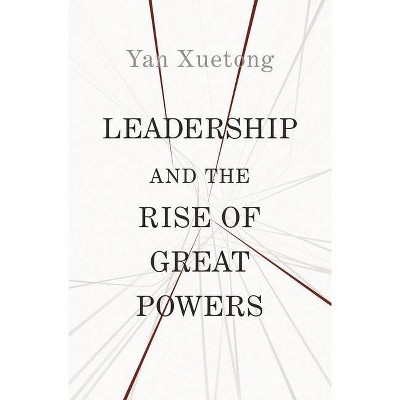
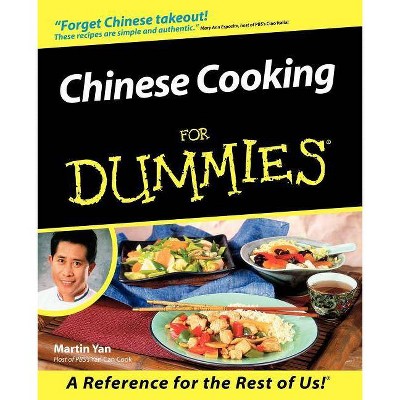
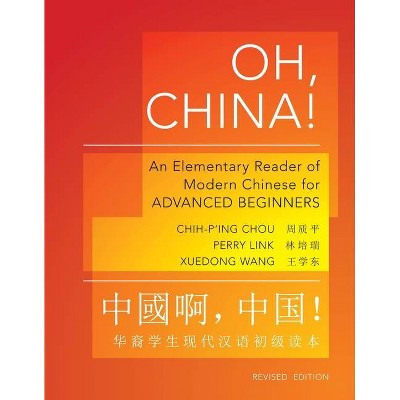
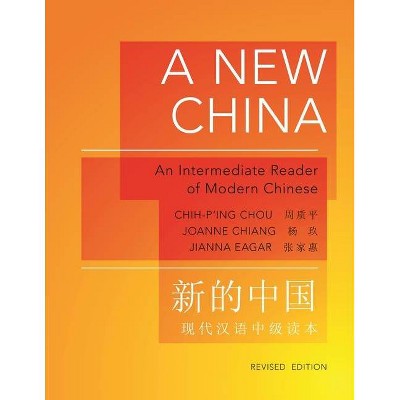
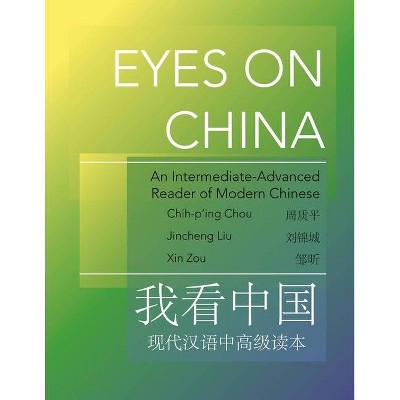
![Ancient Chinese Whorehouse [DVD] [1994]](https://pisces.bbystatic.com/image2/BestBuy_US/images/products/1577/15771933_so.jpg)
